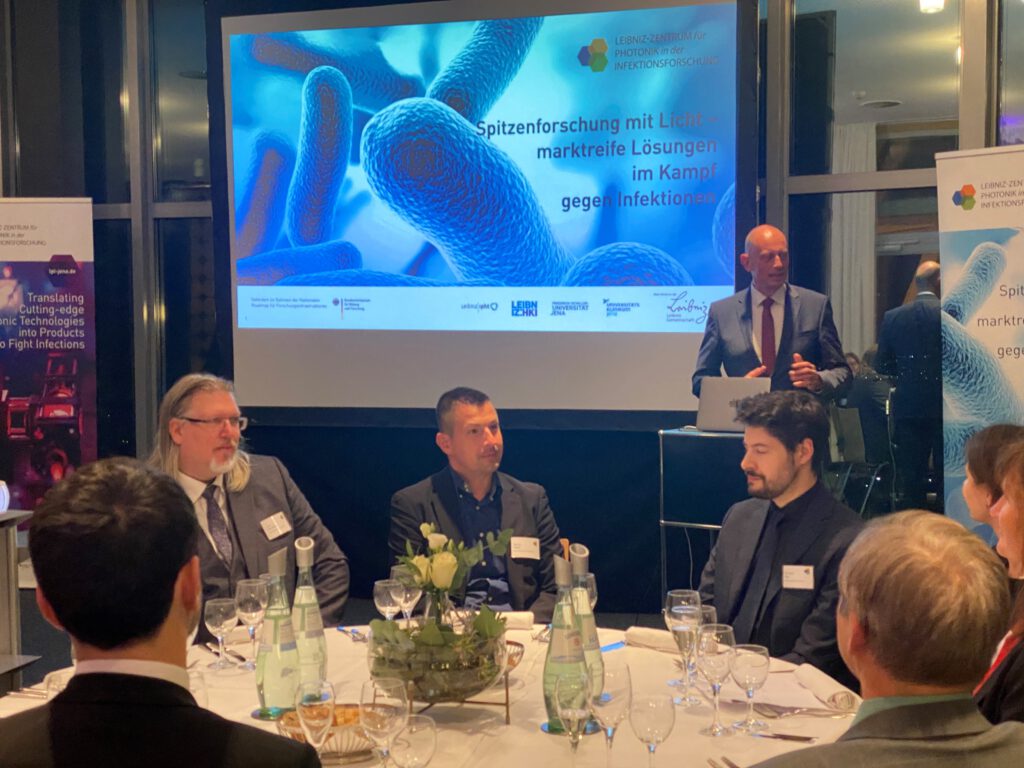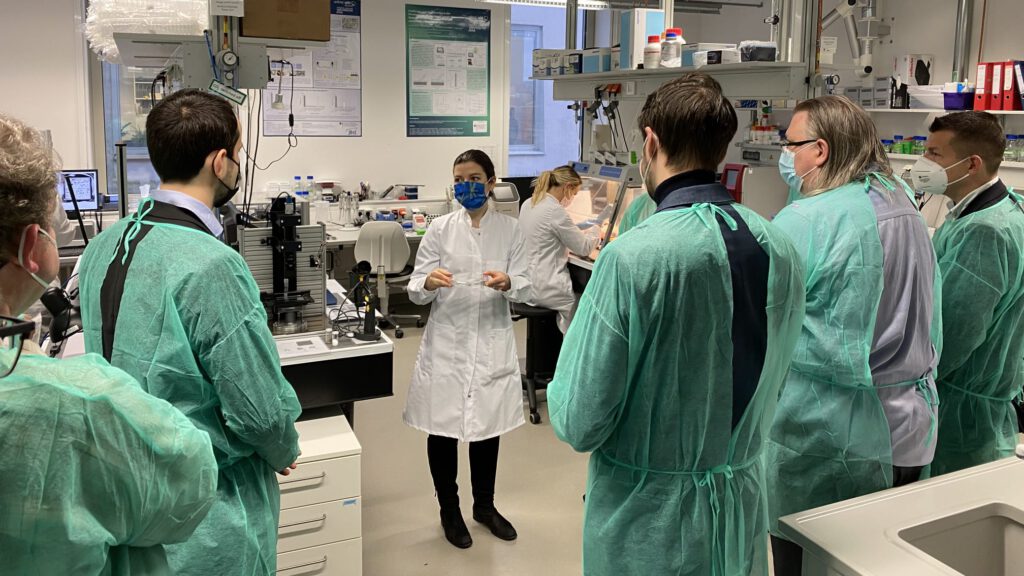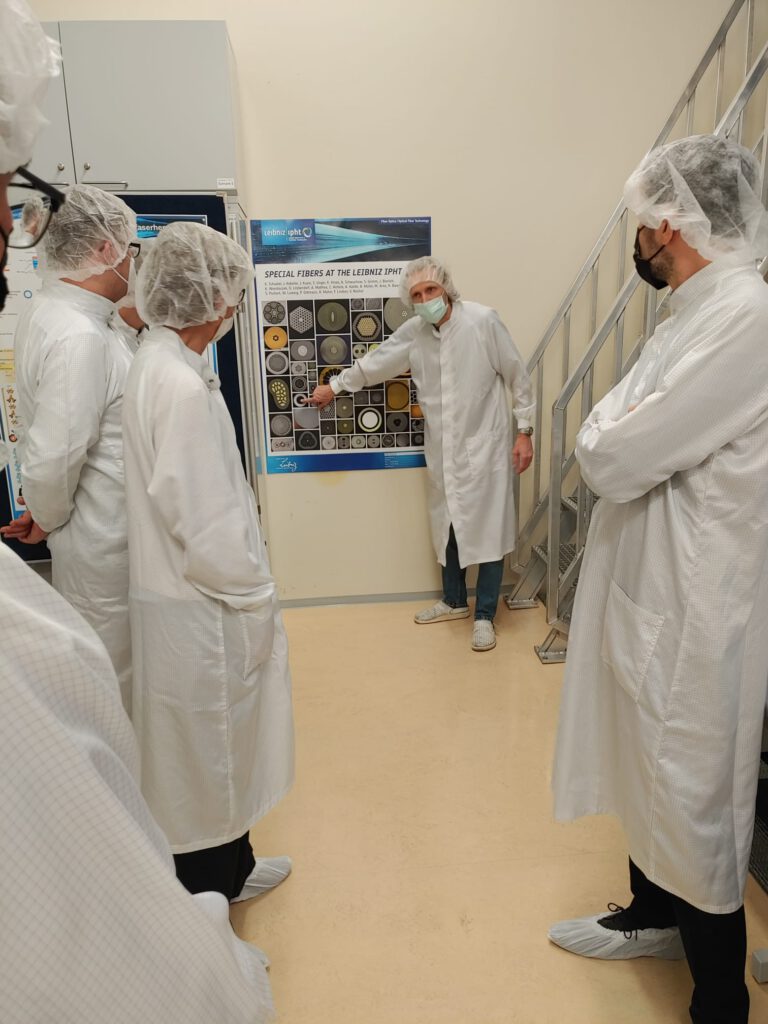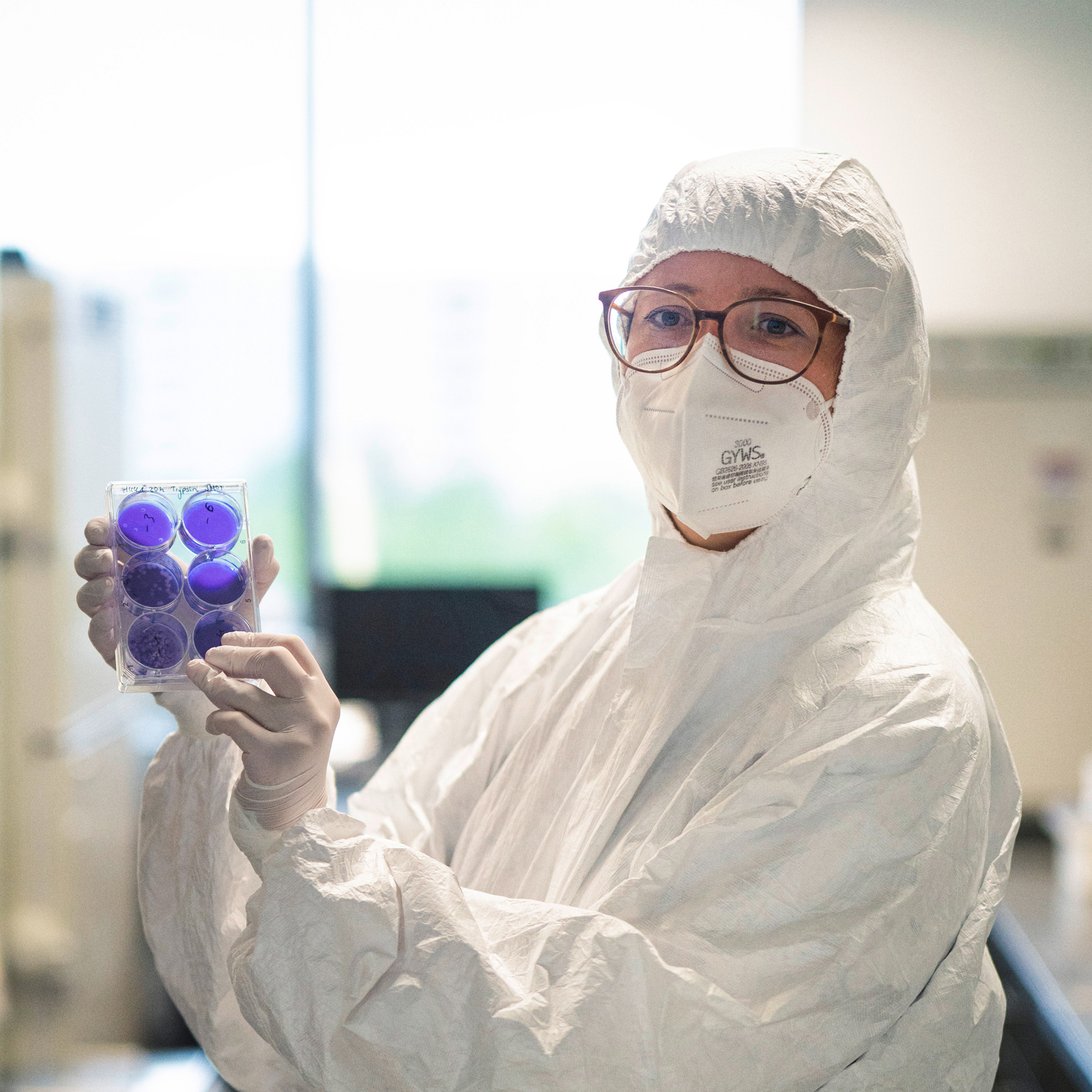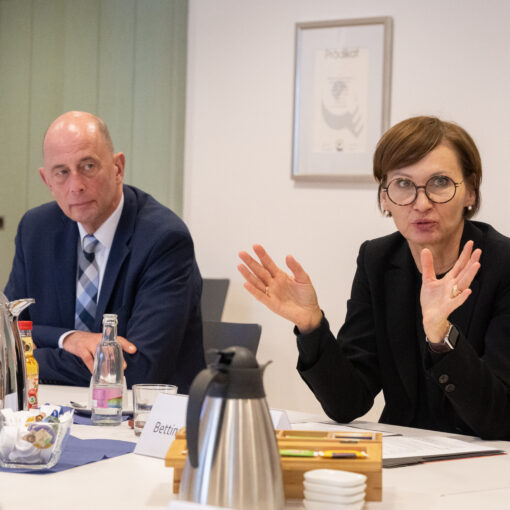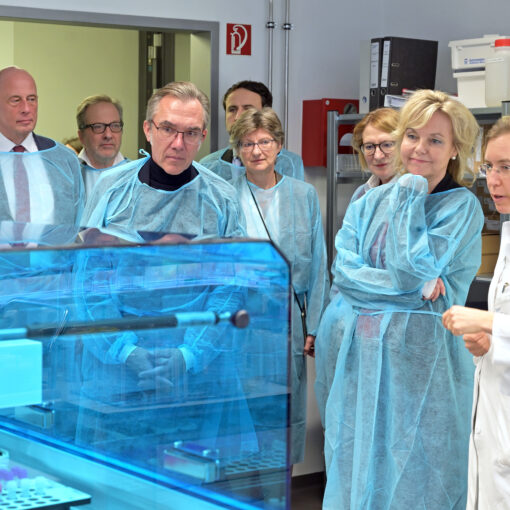On October 26, representatives from politics, industry and science celebrated the LPI kick-off event in Jena – emphasizing the potential that Jena, the City of Light, has as a location for the center’s success.
Representatives from politics, industry and science officially kicked off the establishment of the Leibniz Center for Photonics in Infection Research (LPI) with a kick-off event in Jena. As a globally unique infrastructure, the center will contribute to revolutionizing the diagnosis and therapy of infectious diseases. Within the LPI, researchers, founders and medical professionals can go through all the steps from an idea to a certified medical product in one place. This significantly shortens development times.

Thuringia’s Minister for Science, Economy and Digital Society Wolfgang Tiefensee emphasized in his welcoming speech the inventive spirit of Jena as well as the idea of progress from which LPI benefits. 
Visit of the delegation to the Center for Applied Research at Friedrich Schiller University Jena: Dr. Susanne Pahlow explains the importance of sample preparation for diagnostic tests. 
Delegation visit to the fiber drawing facility of the Leibniz Center for Photonic Technologies (Leibniz-IPHT). Dr. Jörg Bierlich explains how glass fibers can be used for infection research.
Leveraging the potential of the site
In their welcoming addresses, Thuringia’s Minister for Economic Affairs, Science and Digital Society Wolfgang Tiefensee, Prof. Dr. Matthias Kleiner, President of the Leibniz Association, and undersecretary Dr.-Ing. Herbert Zeisel, head of the “Technologieorientierte Forschung für Innovationen” section at the Federal Ministry of Education and Research (BMBF), emphasized the unique position and importance of the center for the transfer of research results. The favorable location in the science and business hub of Jena, where optical health technologies on the one hand and infection research on the other hand have a long tradition, was also made clear: Scientific and economic networking, inventiveness and a spirit of progress with regard to the potential that light has for infection research are particularly intensively developed in Jena, he said.
Visit to the laboratories
The event included a visit to the four supporting institutions – the Friedrich Schiller University, the University Hospital and the Leibniz Institute for Natural Product Research and Infection Biology (Hans Knöll Institute, Leibniz-HKI) and for Photonic Technologies (Leibniz-IPHT). Representatives of the BMBF and the project sponsor VDI Technologiezentrum were informed about the work at the institutes and for the LPI. The focus was on the Department of Microbiology and the Biobank at the University Hospital, laboratories at the Leibniz-HKI, research on new diagnostics at the Center for Applied Research of the Friedrich Schiller University and the fiber drawing facility of the Leibniz-IPHT. The delegation also visited the construction site on the grounds of the University Hospital. Construction work for the LPI building is scheduled to begin there in spring 2024.
Development of the technological base has started
During 2021, construction of the technological base for combating infectious diseases started: As part of the National Roadmap for Research Infrastructures, the BMBF is funding five projects – so called basis technologies – for the LPI with a total of around 50 million euros. Novel image evaluation methods and new photonic technologies are being developed in combination with microfluidics, micro- and nanotechnologies, biotechnology, molecular processes and artificial intelligence for data evaluation. The goal is to provide new, rapid diagnostic methods for infectious diseases and novel tailored therapeutic approaches, while also halting the spread of antibiotic resistance.
Globally unique infrastructure
The LPI is unique worldwide in terms of its infrastructure. As a so-called “one-stop agency” in the immediate vicinity of Jena University Hospital, it will be open to researchers, physicians and start-ups. All development steps from the concept to the certified medical product will be considered in a holistic process. This is supported by professional quality management and early consideration of official approval agencies.

